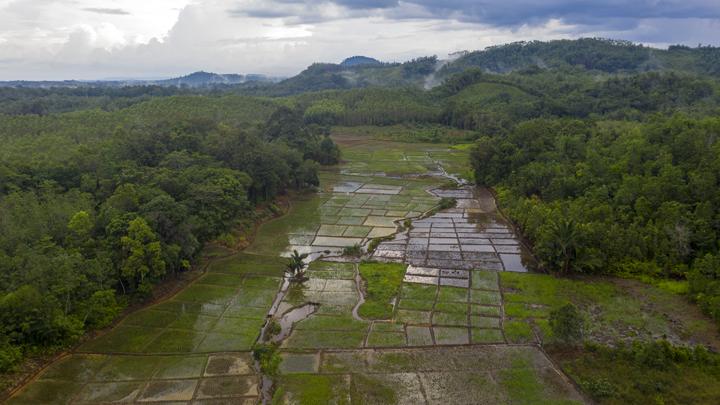
TEMPO.CO, Jakarta - Even a donkey would not fall into the same hole twice. The saying it would seem does not apply to the government when dealing with forest recovery. The bad track record of forest restoration has ascertained the policy is repeating the dismal failure of the New Order regime in rehabilitation programs.
Launched in 2004, forestry ecosystem restoration was a new initiative of the ministry for the environment and forestry (KLHK) after the rehabilitation program showed no results. The reforestry guarantee fund to the conversion of former concession areas for forest exploitation to industrial forest zones failed to halt deforestation. A report from the Center for International Forestry Research (Cifor) in 2008 noted that degraded Indonesian forests had increased to 43.6 million hectares.
Dissimilar to the rehabilitation program, which was a top down mechanism and one that was expensive, the ecosystem restoration initiative roped in private participation. The forestry business no longer only looked at logging, but had shifted to environmental services, education, tourism and non-timber products. In the midst of critical climate change, safeguarding the forest was a new business opportunity with the emergence of a new market for carbon trading. Each ton of sequestered carbon could be sold to countries or corporations that produce emission.
The restoration concept looked viable. Businesses could thrive and forests remained safeguarded. But the execution was not so smooth. Companies holding restoration permits came face to face with government inconsistencies. The raging fires in Rimba Makmur Utama, holder of a restoration concession totaling 157,000 hectares in Katingan, Central Kalimantan, in September, was the tip of the iceberg of the problem.
Rimba Makmur is one of 16 companies holding licenses to make use of timber forestry products yielded from restored forestry (IUPHHK-RE). The companies could look at the carbon business by restoring degraded forest and peatland. Only, the business was disrupted when some 1,880 hectares of its land went ablaze in September. Analysis and information on the ground of the hotpsots indicated the fires originated from the oil palm concession next to one of the restoration concessions.
A similar disaster had occurred in 2015. When investigated into, fires from the palm oil area had been halted one year later. Weak law enforcement made matters worse. The source of the fire was the restoration concession of Rimba Makmur. Almost at the same time awarding the IUPHHK-RE concession in 2013, the KLHK released some 40,000 hectares to three oil palm plantations, that now flank the restoration concessions to the left and right.
Providing landholdings to corporations with a habit for forest degradation for forest and peatland aiming at being restored sounds really odd. A similar problem is now faced by Restorasi Ekosistem Indonesia, the first restoration licence holder in 2007, in a plot straddling South Sumatra and Jambi. A company is now building a road for a mining entity inside the restoration concession.
The KLHK should simply halt all this nonsense. Governent inconsistencies will make forest restoration programs more and more unattractive. More than 10 years have passed, new restoration permits are only handling 623,000 hectares from the 2.6 million hectares prepared for this program. Without the government taking the side of forest restoration, this program will repeat the same dismal failures of rehabilitation which was the main feature of the New Order regime.
Read the Complete Story in this Week's Edition of Tempo English Magazine























